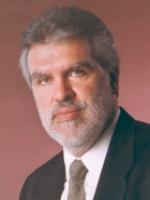
Consultant\'s Role in the Small Entrepreneurial Organization
- There are four possible levels of comprehension regarding the task a consultant carries out. Level B involves the supervision the consultant receives. Level C revolves around the possibility of theoretically studying the wide profile of consulting work. This leads to level four, or rather d, which is the development of a theoretical body of work.
Speaker A Let's take a look at what the consultant's role is in his work with founders. We understand that as consultants we must design four spaces for different kinds of work. The first of these wou...
Transcript of the presentation video
NOTE: This transcript of the video was created by AI to enable Google's crawlers to search the video content. It may be expected to be only 96% accurate.
Speaker A Let's take a look at what the consultant's role is in his work with founders. We understand that as consultants we must design four spaces for different kinds of work. The first of these would be the one meant to accompany the development of the entrepreneur's organizational and managerial dimension so as to help him incorporate new skills. Our second task is and for this we need the support of accountants and the businessman himself to help install within the organization the information systems, the organizational procedures and other communication, coordination, control and delegation tools which will facilitate the continuously advancing exercise of the owner businessman founders new skills. It is this task which will push the organization's development in the direction we saw in the executive organization evolution chart. The third task the consultant must take on is to facilitate the incorporation of the intermediate managerial level. In this, he contributes to the design of its organization. He clarifies the various tasks that must be handled by the founder and businessman and he continues to discriminate what work has to be done at organizational level, at governing body level or at association level. Finally, the fourth task is a much more delicate one because it has to do with an emotional commitment that is assumed with the business. The consultant becomes psychologically involved with the individual in an attempt to help him work out the transition process the company will start to undergo as it begins to grow horizontally. These processes will represent a lower degree of change than those which occur when a new level is introduced and the total reorganization of the company is implied. This was foreseen by Jax in his paper regarding the possible ways of making his organizations grow, but in this case it will lead to a conceptually new action within the organization's current power and authority system. The French have a very specific term for these kinds of changes. They refer to them as bulversimon, as if they were a sort of volcanic eruption within the organization. This eruption makes way for the passage from one type of authority and power originally in the hands of the founder of that two tier organization to another completely different one. This will also occur to the functionally structured three tier organization besides leading to a process of profound change in the business. To end this consulting presentation, let me state that we feel that there are four possible levels of comprehension regarding the task a consultant carries out and that they're structured in the following way. The first level, which we shall call a so as to not confuse it with the previous ones, has to do with the four different types of consulting work themselves. Level B involves the supervision the consultant receives so that he can achieve a deeper understanding of the bond that exists between himself and the entrepreneur. Level C revolves around the possibility of theoretically studying the wide profile of consulting work that has been done over a five to a ten year period of time. This leads us to level four, or rather d, which is the development of a theoretical body of work in conjunction with the development we have been undertaking with Dr. Schlemelson and Dr. Emerick Solomassi regarding the transition theory. We feel we are on the doorstep, on the verge of developing theoretical models that will support the founder businessman in his work of bringing long term stability to these organizations which will provide as the history of humanity has always the ended large amounts of work for everyone.

Major organizations and consulting firms that provide Requisite Organization-based services




